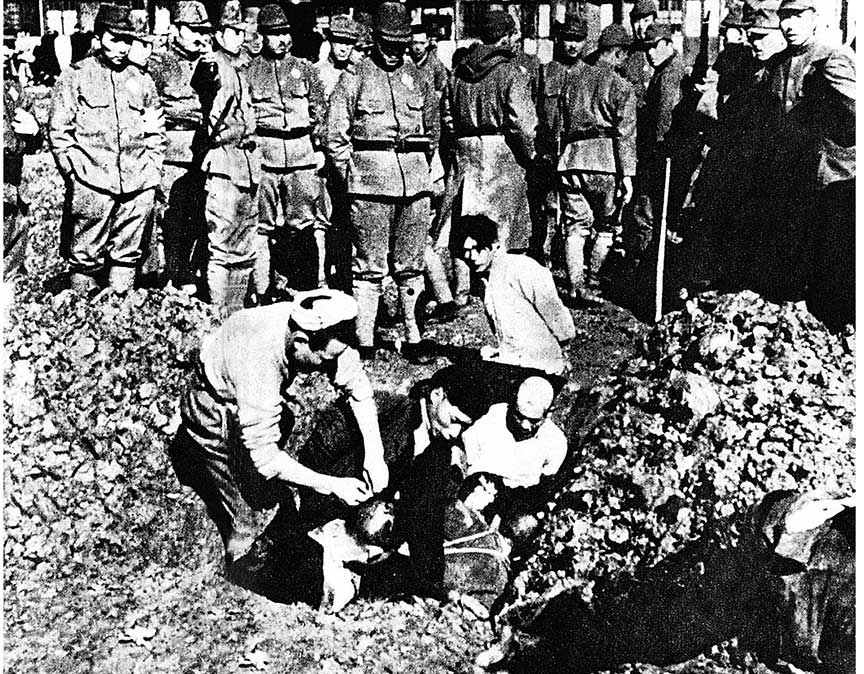1937 Rape of Nanking
The Rape of Nanking, or Nanking Massacre, was a six-week period of mass violence by Japanese forces against residents of Nanking, China, during the Second Sino-Japanese War in 1937-1938. After capturing the city, the Japanese committed widespread atrocities including murder, rape, looting, and arson, with estimates of victims ranging from tens of thousands to over 300,000. This event remains a contentious issue in Sino-Japanese relations and is an example of the severe atrocities of war..
The Second Sino-Japanese War, lasting from 1937 to 1945, was a major part of the broader conflict that would become World War II. Japan, which had been militarizing and expanding its territories, invaded China, leading to a full-scale war.
The Rape of Nanking occurred in the early stages of this war. In November 1937, the Japanese army captured Shanghai, a major city south of Nanking, and then advanced toward Nanking. The Chinese government decided to make Nanking a "non-defensive" city, which meant that most of the Chinese military forces retreated from the city, leaving it vulnerable.
When the Japanese army entered Nanking in December 1937, they began an episode of mass violence, looting, arson, and other atrocities that lasted for approximately six weeks. The exact number of victims is a point of controversy, but credible estimates range from tens of thousands to over 300,000 people. The victims included unarmed soldiers and civilians, as well as women and children. It is estimated that as many 30,000 women were raped and many forced into brothels to serve Japanese soldiers.
The events were widely reported internationally at the time, causing a great deal of condemnation. However, in the post-war period, the Nanking Massacre has been a subject of denial and revisionism by certain factions in Japan, leading to significant controversy and tension in Sino-Japanese relations.
In recent decades, the massacre has been recognized and remembered through memorials, such as the Nanjing Massacre Memorial Hall, and in international scholarly research. The International Military Tribunal for the Far East, conducted after World War II, included the Nanking Massacre in its prosecution of Japanese war crimes.
 >
>